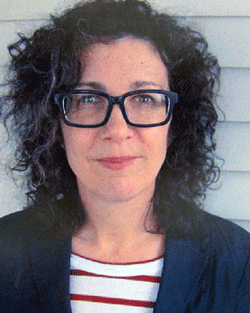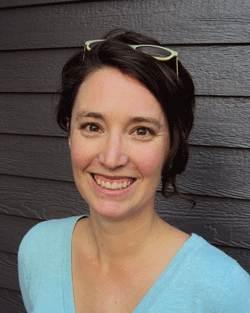The journey of today’s Ph.D. students in the humanities doesn’t lead in one direction. Students are realizing that their degrees and training are in demand in many settings, not just in traditional academic positions.
In an effort to transform the culture of graduate education so that humanities Ph.D. recipients are prepared for a broad range of careers, the National Endowment for the Humanities (NEH) designed the “Next Generation Ph.D.” initiative. The University of Iowa is one of 25 colleges and universities who have been awarded planning grants that will enable them to reimagine graduate education with an eye toward enabling Ph.D. recipients to have greater career flexibility. The $25,000 year-long grant has been matched by $25,000 from the UI Office of the Vice President for Research & Economic Development.

Since the University of Iowa is known as a center of writing innovation, the planning process was designed to enable graduate students to gain greater proficiency at writing for varied venues, and to cultivate proficiency with new digital technologies. The events include a series of symposia organized around rhetorical forms: the dissertation, the footnote, the tweet, the blog, the CV or resume, and the elevator pitch. The symposia activities often feature public conversations at which planning committee members and visiting experts explore how a particular form could serve entrepreneurial graduate students in a variety of careers. The grant proposal highlights the Departments of English, Rhetoric, Classics, and History, along with the Division of World Languages. However, the grant activities and planning meetings are open to all.
Visiting experts have included Amanda Visconti, whose online and freely accessible dissertation, entitled “InfiniteUlysses,” is a participatory digital edition of James Joyce’s masterwork; and Nick Sousanis, whose “Unflattening.” a dissertation in comics form, experiments with making arguments through images.
“I hope our students can be inspired and empowered by seeing these people who invented their own paths. Their dissertations are being held up as interesting and innovative projects,” Pascoe says.
The future of the dissertation
One impetus for the pilot program is to start a conversation about what dissertation options in the humanities will look like in the future.
“There’s a strong movement in graduate education to re-think the traditional dissertation format. In part, it’s related to the need to better communicate the role of academic research as part of the public good,” says Jennifer Teitle, part of the program’s planning committee and an assistant dean at the Graduate College. “Other influences on dissertations include the tight academic job market. Graduate students wonder if a traditional dissertation is the right fit if they want a career in publishing or directing a state historical society.”
Graduate students are being trained to prepare for varied career possibilities by becoming more technologically sophisticated and developing digital humanities skills. At the same time, they must adhere to established disciplinary standards while writing their dissertations.
“Students are feeling, especially at an institution like this one where they teach a lot for their funding, a sense of how are we going to do all these things. What I tried to do in the grant proposal is to find ways to defuse those tensions by imagining how the competing pressures could become integrated,” Pascoe says.
There will continue to be conventional 300-page dissertations. However, more dissertations may include digital components in the future.
Discussions about these topics are at the center of “The Newly Composed Ph.D.” planning process.
“A lot of this is going to start with the dissertation committee,” Pascoe says. “There is an expectation that students will meet certain rigorous disciplinary standards, showing that they have some kind of authority over a field. Those who are working in new formats will need to convince their committees that they are still accomplishing the desired tasks and developing the necessary skills in the new formats.”
Creativity will lead the way
Erica Damman, a Ph.D. student in interdisciplinary studies, talked with members of her dissertation committee about composing a non-traditional thesis. Damman, who attends symposia offered by Pascoe’s group, is creating a dissertation that features three board games focusing on environmental topics, particularly climate change and human vulnerability to its ramifications.

“My dissertation committee was eager to have me measure the impact of the games in some way. Is a game equal to one chapter of my dissertation, or two chapters,” says Damman, a former Graduate Institute on Engagement and the Academy Fellow and Humanities without Walls participant at the Obermann Center. “We had to come to a negotiated agreement about what the work would actually look like in terms of how much writing would be accompanying this.”
Damman’s dissertation will include an approximately 120-page companion piece.
“I don’t mind doing the writing, because it’s a type of scholarship that other people still know,” Damman says. “Even though I’m doing a hybrid dissertation, there’s a part of it that other people will recognize as scholarly work.”
Damman’s innovative dissertation may inspire more graduate students at the University of Iowa to experiment with non-traditional components in their theses.
“She’s one creative person. We’ll continue to get creative people knocking on the door of digital dissertations,” Teitle says. “This, to me, is how the real change will happen. If the students create a culture and a movement that we don’t have to bestow on them, they’ll do it piece by piece.”